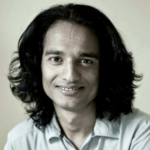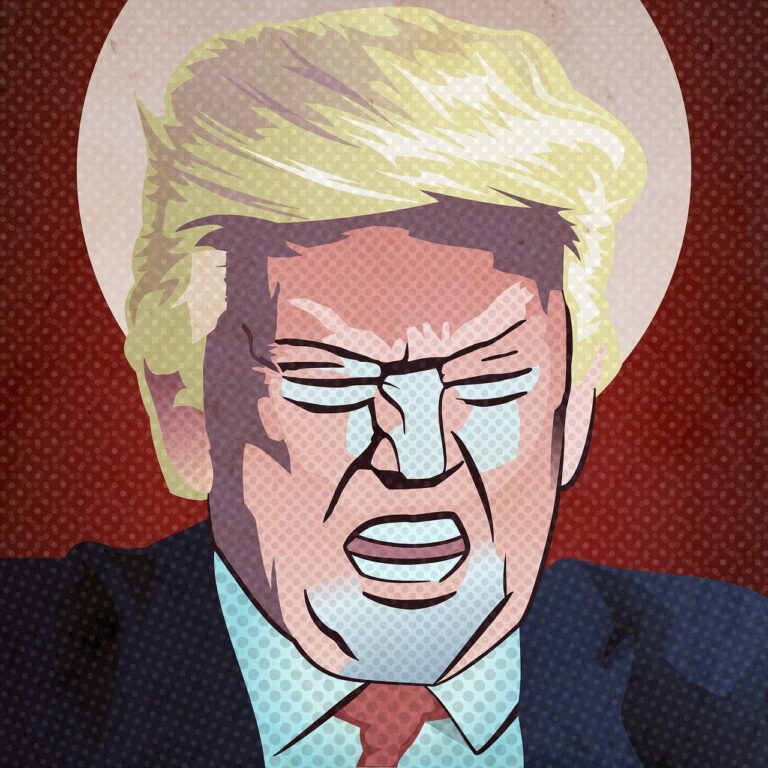
File photo of Uttar Pradesh Chief Minister Yogi Adityanath presenting replica of the Kashi Vishwanath Dham to Prime Minister Narendra Modi
For how long can Yogi Adityanath survive as the Chief Minister of Uttar Pradesh? Right after the results of the 18th Lok Sabha elections from Uttar Pradesh upset the Bharatiya Janata Party’s grand plan of getting more than 400 seats, as was its poll plank – “Abki Baar 400 Paar“, there are many who have been waiting for the axe to fall on Chief Minister Yogi Adityanath. The Chief Minister’s detractors see him as the main reason behind the slump in the BJP’s Lok Sabha seats from 71 out of 80 in 2014, and 62 in 2019 to 33 in 2024.
Right after the election results, the blame game started to unfold and the BJP leaders gathered in Lucknow to analyse its unexpectedly low performance in the state.
Ever since the political corridor in Lucknow has continuously been abuzz with news of Deputy Chief Minister Keshav Prasad Maurya and former Chief Minister Akhilesh Yadav wielding swords in the air. There were whispers about the possibility of defection of 100 BJP MLAs to the Samajwadi Party even. The rift between the Chief Minister and his deputy Maurya has reportedly widened, and the equation between Maurya and Yogi has snowballed into an organisation versus government confrontation.
So far the attempts to replace Yogi Adityanath and to hold him responsible for the defeat of the BJP-led National Democratic Alliance (NDA) in the Lok Sabha elections have not been successful.
Yogi Adityanath, on his part, has enumerated three reasons for the plight of the party –
- The overconfidence of the party was reflected in its slogan ‘Abki Bar 400 Par’.
- The public believed the slogan to be in tune with the ‘propaganda’ of the opposition alliance, to change the Constitution.
- The party’s failure to convey the achievements of the double-engine government to the public.
At the same time, Yogi appears politically smart enough to make moves that could consolidate his position in the state. His brand of politics was on display when the food shops in the Kanwar route turned into a Hindu-Muslim issue when the UP government asked the Muslim owners to display their names on the signboards of these shops. The apex court passed an interim order against it. The proponents of halal verification referred to it as one of the communal agendas. However, the majority of the state’s population was taking pride in it.
Appeasement of Muslim vote banks is a reality in Indian politics. The electorate has been discussing either in its favour or against more like the politics of using bulldozers against encroachers. The grip of Yogi Adityanath on the pulse of the public who are highly polarised along the communal lines, was reflected in such recent developments.
After the 2024 general elections, ten legislators were elected to the Lok Sabha from Uttar Pradesh. Of them, four were from the BJP, five from the Samajwadi Party and one from the Rashtriya Lok Dal.
Now the preparations of the government for the by-elections on these vacant assembly seats have surprised many. Yogi has formed a 30-member team tasked with ensuring victory and has conspicuously kept his two deputies, Maurya and Brajesh Pathak, out of it. Instead, fourteen ministers of Yogi’s choice are responsible for each assembly constituency, which gives a clear message to the party’s central leadership about the control that he wields in the state.
Can the BJP leadership forget the fact that after the popular government led by Kalyan Singh in Uttar Pradesh fell prey to internal conflict during the Atal Behari Vajpayee era, the party had to wait for 18 long years to come to power?
Also read: उत्तर प्रदेश में भाजपा कर सकती है बड़े फेर बदल
Moreover, what further strengthens Yogi’s position is the Rashtriya Swayamsevak Sangh supremo Mohan Bhagwat himself initiating the attack on the top BJP leadership in his response to the election results. Bhagwat has also taken a dig at Prime Minister Narendra Modi’s statement that he doesn’t believe himself to be a biological creature. Without naming Modi, Bhagwat had told a village gathering in Jharkhand on July 18, 2o24, “…after achieving human qualities, man aspires to become a superman with supernatural powers and then attain the status of ‘devta’ and ‘bhagwan’. He then aspires for vishwaroop. Nobody is certain about what lies ahead”, he said and added that the “development of the inner and outer self is a never-ending process”. He went on to say that a ‘true sevak’ does not have arrogance.
Bhagwat also came down heavily on the BJP president JP Nadda for the latter’s reported comment in the run-up to the Lok Sabha elections that the BJP earlier needed the RSS but now it is the party which runs itself.
The 5 million cadres of the RSS stand nowhere in comparison with the 36 times bigger BJP cadre, but the post-result debacle is hovering over the thoughts of most of the leaders of the BJP and the RSS. Therefore, it is apparent that those demanding Yogi’s resignation are on the back foot.
The departure of Yogi from the politics of Uttar Pradesh cannot be as smooth as the replacement of Shivraj Singh Chauhan in Madhya Pradesh, Vasundhara Raje Scindia in Rajasthan and Dr Raman Singh in Chhattisgarh. The UP Chief Minister seems to have enough in his arsenal to challenge the triumvirate of Prime Minister Narendra Modi, Home Minister Amit Shah and BJP president JP Nadda. Rarely has a rebellion become so vocal in the BJP in the Modi era. Yogi’s deft political moves pull the public sympathy and support of the RSS in his favour.
The BJP leaders eyeing the Chief Minister’s chair of the largest state of India now quietly realise that blaming Yogi Adityanath for the electoral loss in UP and replacing him may not go well with the majority in the state. Yet not all are convinced. There are many people ready to subscribe to caste politics and argue that on account of the politics of caste-ridden factionalism and polarisation along religious lines, the BJP candidates were defeated by their opponents from the Samajwadi Party and the Congress Party of the I.N.D.I. Alliance in the general elections.
The fall of governments in Uttar Pradesh has been attributed to the prevailing caste syndrome on several occasions in the past. Its proponents thus argue that even if one considers that the support to Yogi is confined only to the Rajputs, even Rajput leader Braj Bhushan Sharan Singh and Yogi Adityanath are poles apart for a long.
However, in the final analysis, it appears that it will not be easy for the BJP high command to change the face of its government in Uttar Pradesh. However, there is every possibility that this issue will be debated after the results of bye-elections.
*Author of The Holy Ganga (Rupa 2008). The views published are personal.






